And I will give you pastors according to mine heart, which shall feed you with knowledge and understanding.
Jeremiah 3:15, KJV
Pastors and other church leaders have a special, God-given responsibility to lead their churches in a way that constantly points to Jesus. Admittedly, such leaders are human and cannot be expected to lead perfectly in this sinful world, but that is not an excuse for them to do a poor job. Church leadership should minister to their congregations by adhering to a higher, Heavenly standard.
As part of the 2013 Global Church Member Survey (GCMS), members worldwide were asked about their perspectives on different pastoral characteristics. One such characteristic was how local pastors do when it comes to interpersonal relationships. Nearly 74% of respondents felt their pastor was almost always or often helpful in times of need, and 64% of respondents said that their pastor was almost always or often sensitive to the needs of others. However, fewer than 50% said their pastors demonstrated either of these characteristics almost always. Additionally, 10% considered their pastors were never or rarely helpful in times of need, while 15% thought so about the sensitivity of their pastors to the needs of other people.
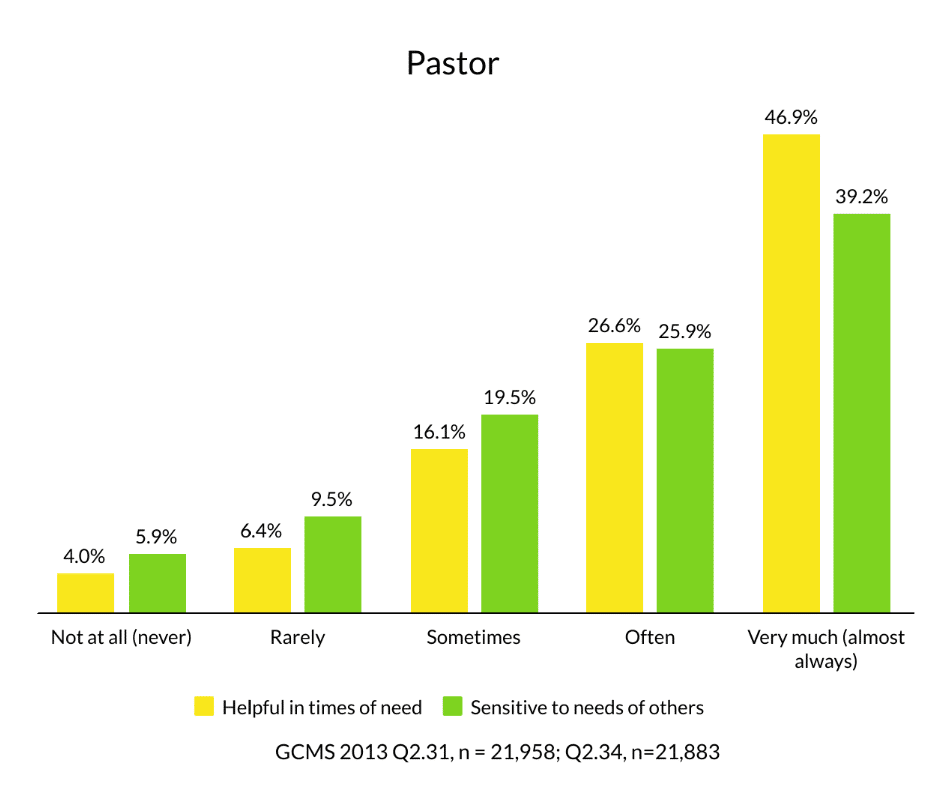
Another important aspect of being a good pastor includes spiritual leadership and effective preaching. When 2013 GCMS respondents were asked if their local pastor is an effective preacher, four in five (79%) shared that their pastor is almost always or often a good preacher. Many members (73%) also feel that their pastor is inspiring. Additionally, when asked if they believe their pastor displays true spiritual leadership, over half (54%) shared that their pastor almost always does; another quarter (25%) shared that their pastor often displays true spiritual leadership. Although these are good results, there is room for growth in the very much/almost always category.
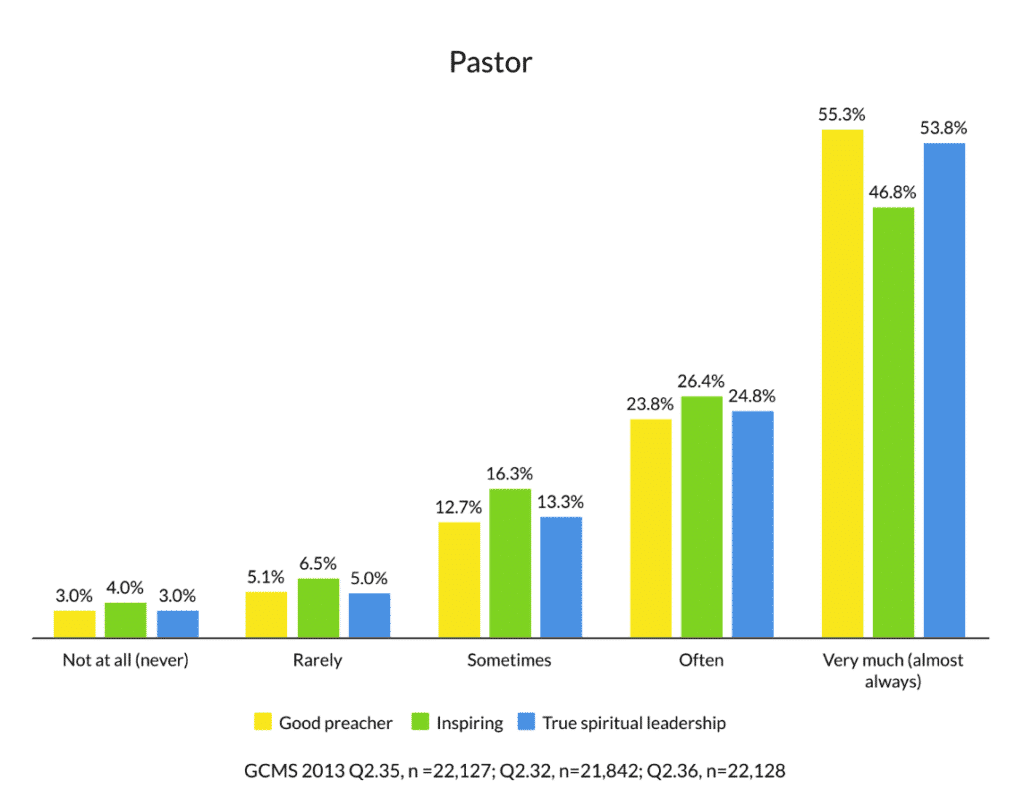
When they were asked about their pastor’s receptivity to new ideas, two in five respondents (42%) reported that their pastor is almost always receptive, while 27% report that their pastor is often receptive. Interestingly, one in ten (10%) respondents indicated that their pastor is never receptive to new ideas. Most members (77%) felt that their pastor is enthusiastic about his work. Additionally, seven in ten (71%) members felt that their pastor is thorough in his pastoral duties. However, again 10% responded that their pastor is never thorough in his duties. While it is encouraging that most church members have had positive experiences with their pastor in these areas, there is definitely room for growth, especially in the areas of receptivity to new ideas and being thorough in pastoral duties.
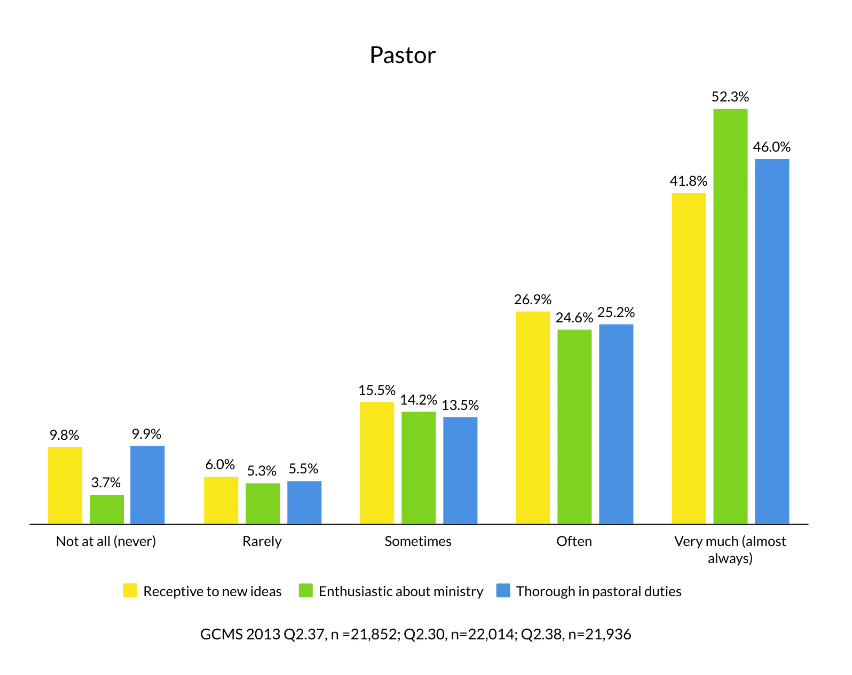
How does the local church leadership, as a whole, do in similar areas? When it comes to interpersonal relationships, most (78%) church members feel that their church leaders are easy to talk with. A similar number (77%) also feel that their local church leadership does enough to engage with congregants. However, when asked to respond to the negative statement, “My church leadership is out of touch with local church needs,” over two in five members (42%) agreed to one extent or another. It would seem that there may be more going on under the surface than what meets the eye when it comes to interpersonal relationships with church leadership.
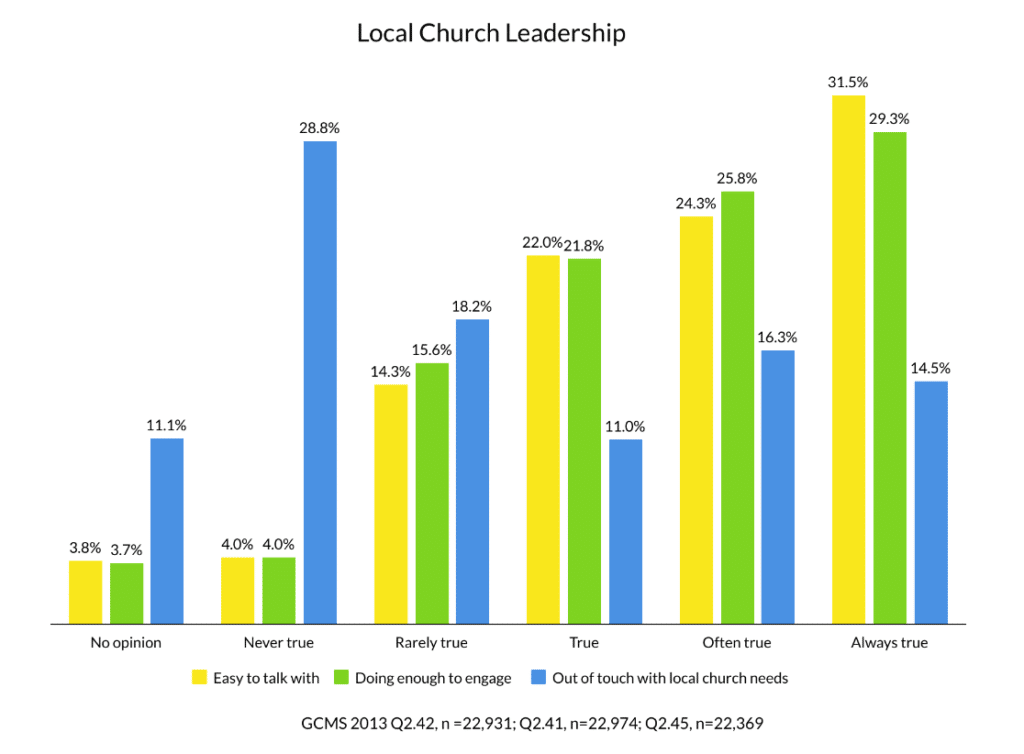
When they were asked if their local church leadership is open to new ideas, just over two-thirds of respondents (70%) believe that this is true for their church. These numbers are comparable to those received by pastors. A similar number of members (69%) feel that their church leadership is creative.
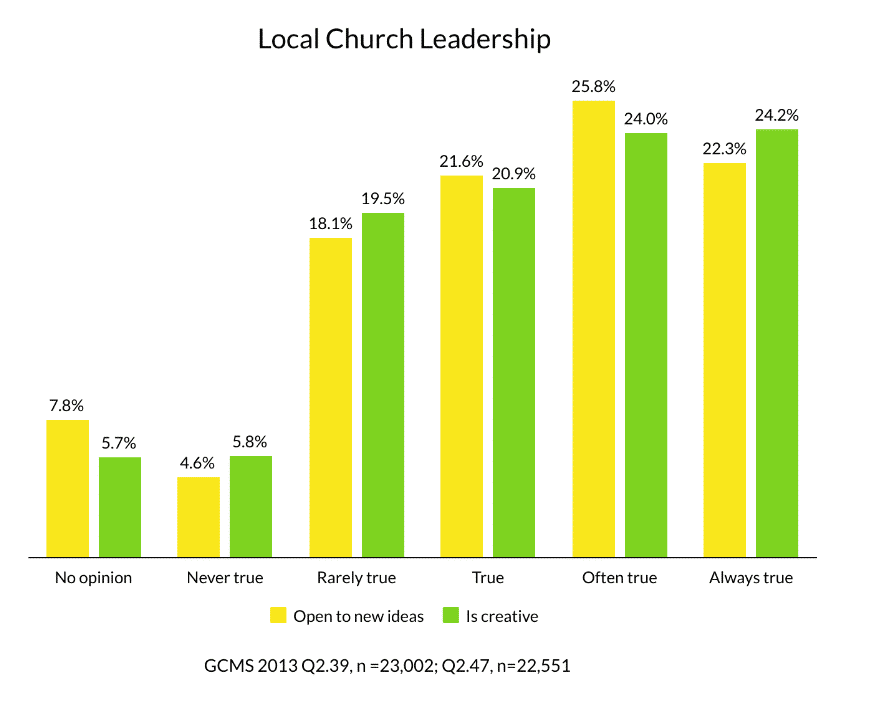
Respondents were asked about how local church leaders support the church, in general. Four in five members (80%) feel their church leaders are active in assisting the local church. A similar amount (80%) believe that their local church leaders are effective at clearly communicating the church’s mission. When the GCMS participants were asked if their local church leaders supported the involvement of youth in worship, a majority (80%)indicated that they did so. That is interesting since the presence and involvement of young people tend to be an area of weakness for many Adventist churches. The question does arise to what degree is the youth involved in worship? Are they reading scripture from upfront, are they helping with collecting offering, or are they really involved in every aspect of worship? It is also important to note that only about one-third of respondents indicated that the leaders in their local church almost always were active in assisting their congregations, clearly communicated church mission, and supported the involvement of youth in worship.
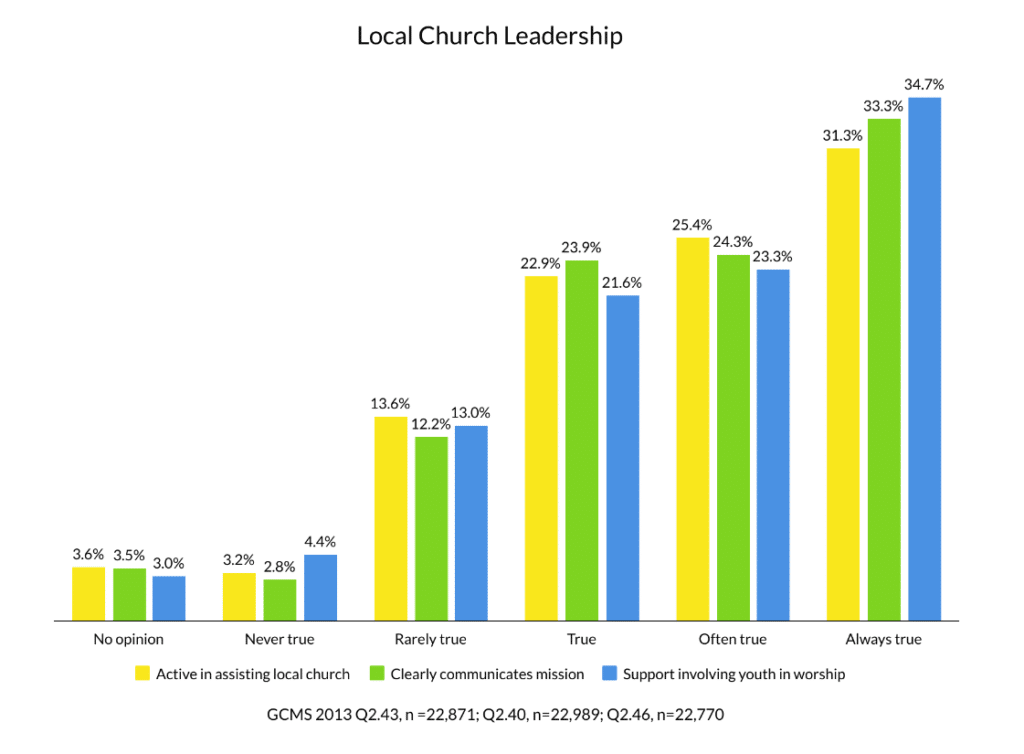
As a whole, church members seem to respond well to their pastors and local church leadership. However, leaders should use these members’ responses as a challenge to improve their interactions with congregants and their effectiveness as leaders. How can you, personally, use this information to adapt your relationship with your local church? Do you know how church members perceive your leadership? Maybe you could conduct a survey in your local congregation? It can evaluate how your leadership team is doing and how church members perceive their leadership.
The apostle Paul saw the need for personal evaluation, and he warned against self-deception.
“For if a man think himself to be something, when he is nothing, he deceiveth himself. But let every man prove his own work, and then shall he have rejoicing in himself alone, and not in another.” (Galatians 6:3,4, KJV)
Finding out that there is room for improvement is not a sign of failure but could provide motivation to act on some overdue changes that were talked about but not yet implemented.
Creado en colaboración con el Instituto del Ministerio de la Iglesia (Institute of Church Ministry).
Published by ASTR

